Magdalena Zawisławska (Principal Investigator)
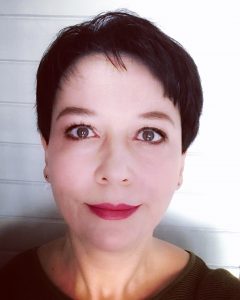 Researcher at the Institute of Polish Language, Faculty of Polish Studies of the University of Warsaw. Her primary research interest lies in lexical semantics, cognitive semantics, contrastive semantics, natural language processing, teaching Polish to foreigners, and metaphor in various discourse types. She has participated in multiple research projects: Automatic methods of constructing a semantic network of Polish lexemes for natural language processing (head of the research team: dr M. Piasecki), Polish FrameNet Project (head of the research team: prof. J. Linde-Usiekniewicz), The Senses in Polish Culture. Representations of the Human Senses in Language, Literature, and Art from the Middle Ages to the Present (head of the research team: prof. W. Bolecki), CORE: Computer-based methods for coreference resolution in Polish texts (head of the research team: dr M. Ogrodniczuk). Author or co-author of the following books: Czasowniki percepcji wzrokowej. Ujęcie kognitywne, Wydawnictwa Wydziału Polonistyki UW, Warszawa 2004, Metafora w języku nauki. Na przykładzie nauk przyrodniczych, Wydawnictwa Wydziału Polonistyki UW, Warszawa 2011, Coreference Annotation, Resolution and Evaluation in Polish, Walter De Gruyter, 2014 (co-authors: Maciej Ogrodniczuk, Katarzyna Głowińska, Mateusz Kopeć, Agata Savary)
Researcher at the Institute of Polish Language, Faculty of Polish Studies of the University of Warsaw. Her primary research interest lies in lexical semantics, cognitive semantics, contrastive semantics, natural language processing, teaching Polish to foreigners, and metaphor in various discourse types. She has participated in multiple research projects: Automatic methods of constructing a semantic network of Polish lexemes for natural language processing (head of the research team: dr M. Piasecki), Polish FrameNet Project (head of the research team: prof. J. Linde-Usiekniewicz), The Senses in Polish Culture. Representations of the Human Senses in Language, Literature, and Art from the Middle Ages to the Present (head of the research team: prof. W. Bolecki), CORE: Computer-based methods for coreference resolution in Polish texts (head of the research team: dr M. Ogrodniczuk). Author or co-author of the following books: Czasowniki percepcji wzrokowej. Ujęcie kognitywne, Wydawnictwa Wydziału Polonistyki UW, Warszawa 2004, Metafora w języku nauki. Na przykładzie nauk przyrodniczych, Wydawnictwa Wydziału Polonistyki UW, Warszawa 2011, Coreference Annotation, Resolution and Evaluation in Polish, Walter De Gruyter, 2014 (co-authors: Maciej Ogrodniczuk, Katarzyna Głowińska, Mateusz Kopeć, Agata Savary)
Marta Falkowska (Co-investigator) 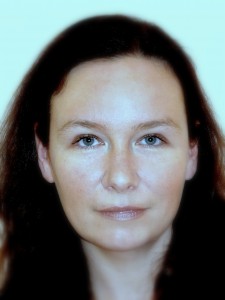
Researcher at the Institute of Polish Language, Faculty of Polish Studies of the University of Warsaw. Her research interests involve: lexical semantics, cognitive grammar (construal in particular), the grammar of contemporary Polish, as well as English-Polish translation. She has participated in the project The Senses in Polish Culture. Representations of the Human Senses in Language, Literature, and Art from the Middle Ages to the Present (head of the research team: prof. W. Bolecki). Author of the book: Semantyka winy we współczesnej polszczyźnie (Wydawnictwa Wydziału Polonistyki UW, Warszawa 2012). She teaches grammar of the contemporary Polish, and translation.
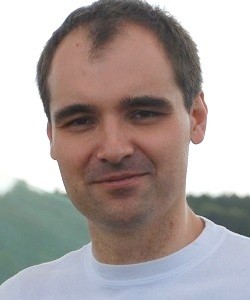 Maciej Ogrodniczuk (Co-investigator)
Maciej Ogrodniczuk (Co-investigator)
Computer scientist, linguist, member of The Linguistic Engineering Group at the Institute of Computer Science, Polish Academy of Sciences. His research interest lies in semantic descriptions of the Polish language, in particular coreference resolution in Polish texts. He has recently directed the research project: CORE: Computer-based methods for coreference resolution in Polish texts. He has also participated in many NLP projects. For more information: http://zil.ipipan.waw.pl/MaciejOgrodniczuk.
Marta Chojnacka-Kuraś (annotator)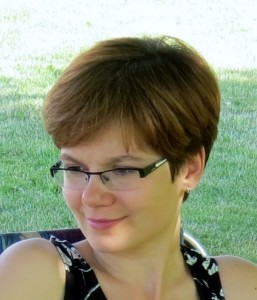
Researcher at the Institute of Polish Language, Faculty of Polish Studies of the University of Warsaw. Her research interests encompass: lexical semantics, cognitive semantics (i.a. metaphor), grammar of contemporary Polish, and natural language processing. She has participated in the project National Corpus of Polish (head of the research team: prof. A. Przepiórkowski ) as an annotator of proper names, and named entities. She also took part in two European projects carried out by The Linguistic Engineering Group at the Institute of Computer Science, Polish Academy of Sciences: ATLAS (Applied Technology for Language-Aided CMS; head of the research team: prof. A. Przepiórkowski) and CLARIN (Common Language Resources and Technology Infrastructure; head of the research team: prof. A. Przepiórkowski). She teaches grammar of the contemporary Polish.
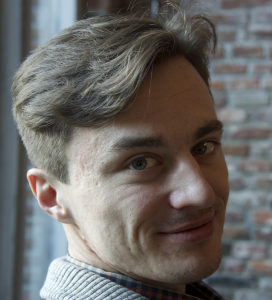 Jakub Kozakoszczak (annotator)
Jakub Kozakoszczak (annotator)
PhD student at the Faculty of Modern Languages. His research interests include formal and distributional semantics, Natural Language Processing and methodology of corpus linguistics. He has participated in the project CLARIN (head of the research team: prof. Adam Przepiórkowski) at developing a system for deep semanto-syntactic text analysis and at labouring a methodology for support and evaluation of Recognizing Textual Entailment systems for Polish. He teaches courses on methods of corpus linguistics and trusts in combining empirical and formal methods in linguistics.
